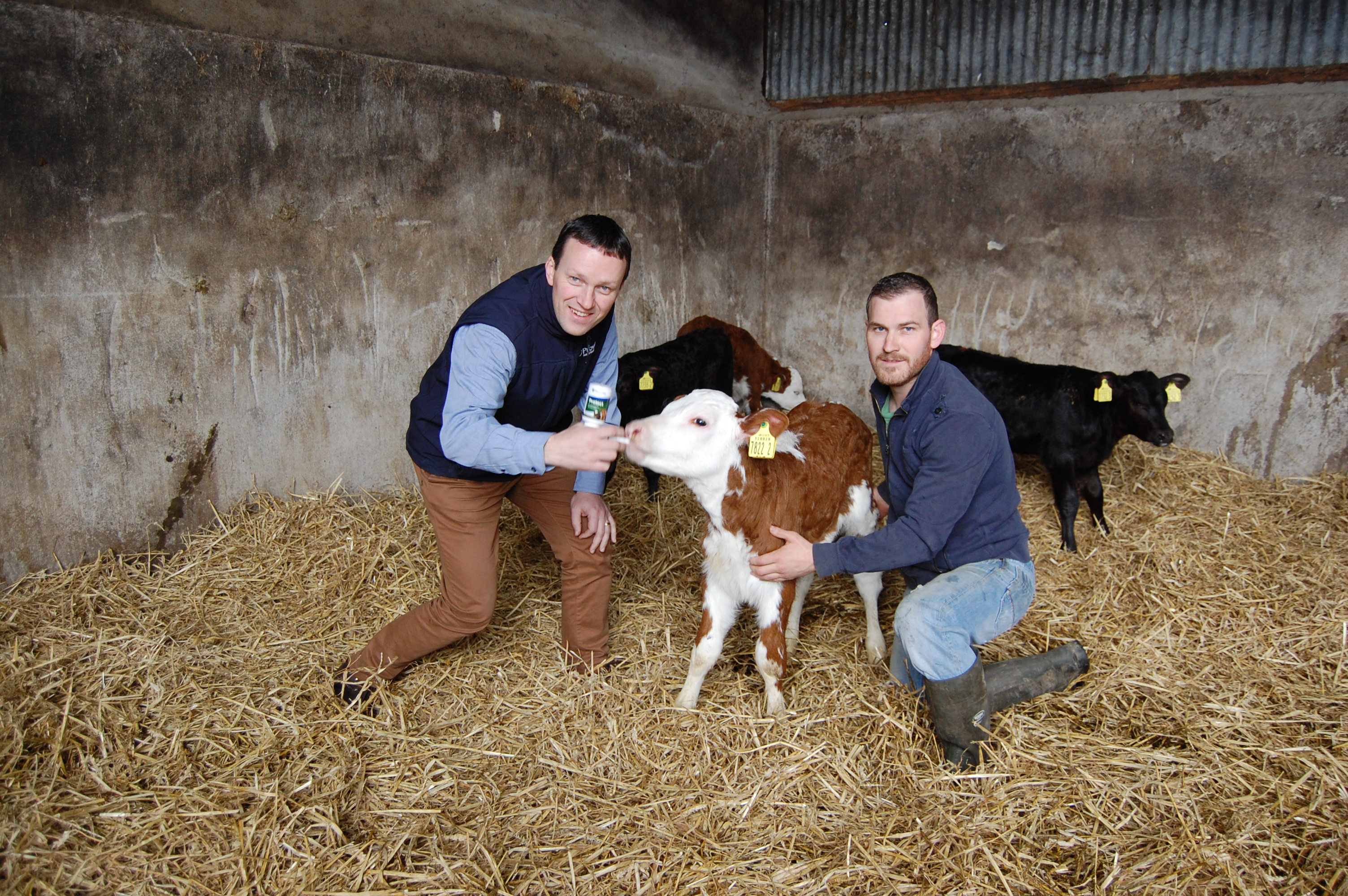Father and son team Peter and Ciaran Kerr run a successful calf rearing business on the family’s Lurgan farm. The enterprise is focussed on the sourcing of top quality cross bred calves directly from dairy farmers, with whom they have built up a close working relationship. The animals are then sold-on in batches to customers, many of whom are repeat clients.
“We bring the calves in at around 10 days of age,” Peter explained.
“They are then put on a pre weaning regime which ensures that they secure optimal daily growth rates.
“We guarantee that all of the calves have received their full requirement of colostrum directly after birth. However, in order to ensure that they will not encounter any setbacks we treat them with Provita Protect as soon as they arrive with us.
Ciaran takes up the story:
“Each calf gets a shot of Protect immediately on arrival. And it certainly acts to boost their immunes system. We do everything possible to ensure that the calves are reared in accordance with the highest management standards. But sometimes this isn’t enough to prevent an outbreak of scours.
“However, since we started using Protect, problems of this type have not arisen.
“We are selling on the calves that we bring on to the farm. So it is crucially important that they remain healthy at all times.”
Provita’s Tommy Armstrong called in with Peter and Ciaran earlier this week.
“Protect is an oral supplement providing high-level multi-strain probiotic bacteria to prevent diarrhoea in newborn calves,” he explained.
“It is the only probiotic which is medicinally licensed for the prevention of calf scour. It has been clinically proven to reduce calf scour by 83%. To obtain this Veterinary Licence, it has undergone many years of rigorous testing to guarantee safety, efficacy and quality.
“Provita Protect suspension supplies 10 billion unique triple strain probiotic bacteria that rapidly colonise the sterile gut of the newborn calf. These unique probiotic bacteria prevent harmful pathogens such as E Coli from attaching to the gut wall through competitive exclusion. The probiotic bacteria also produce lactic acid therefore lowering the pH in the gut further inhibiting harmful pathogens. The combination of more bacteria and lower pH also improves digestion as demonstrated by a 31% increase in growth rates in clinical trials.
“Protect should be given to new born calves at birth; bought-in calves; after digestive upsets or after antibiotic therapy.”
